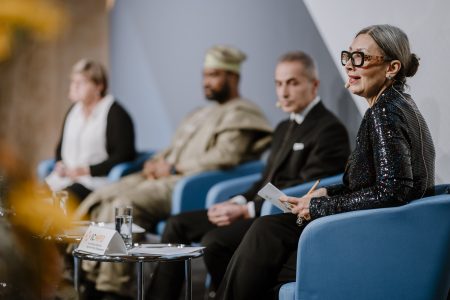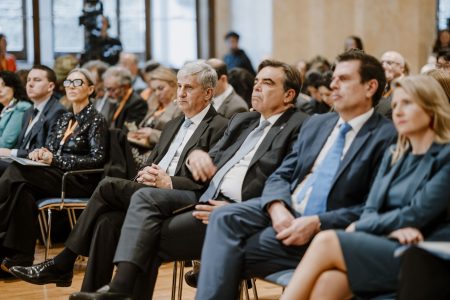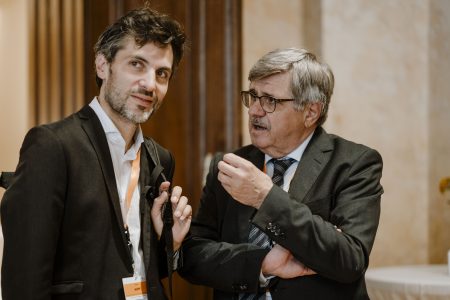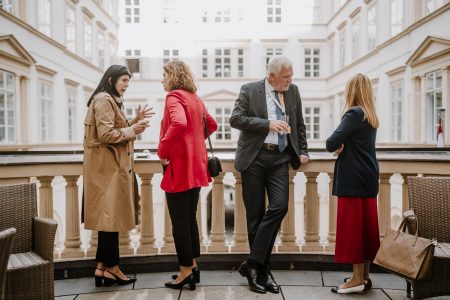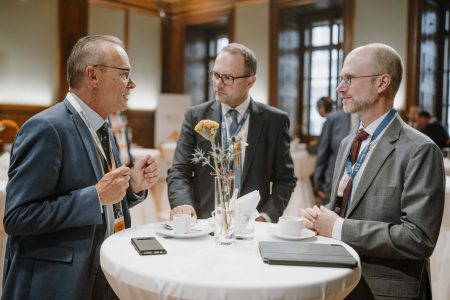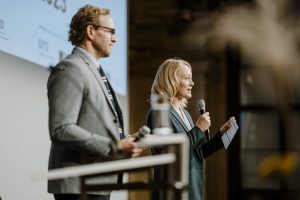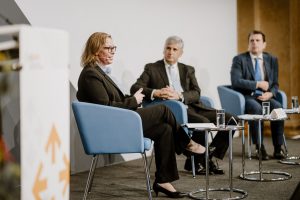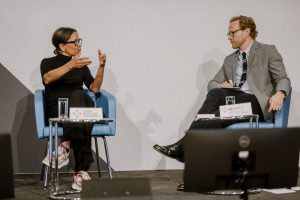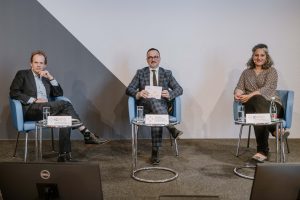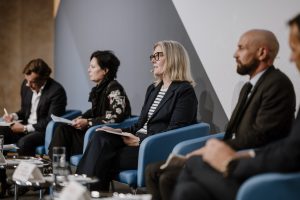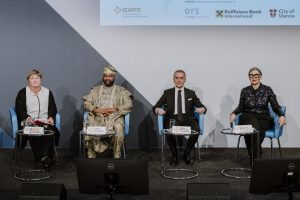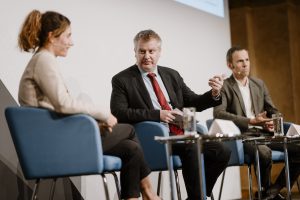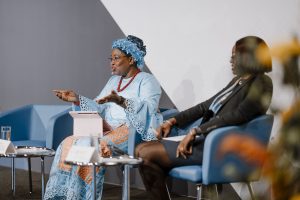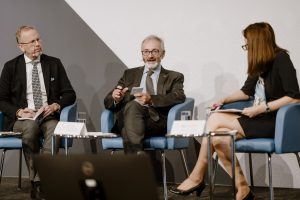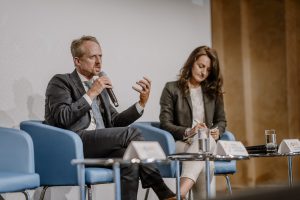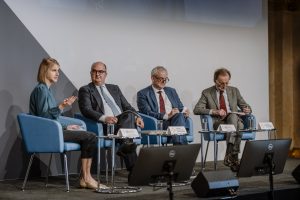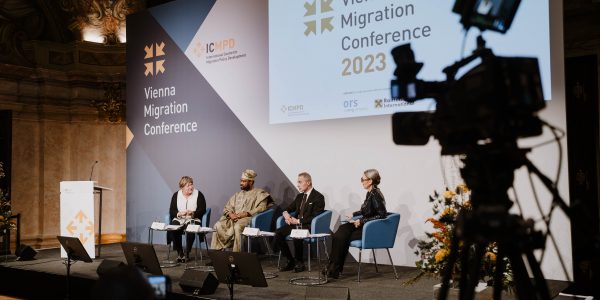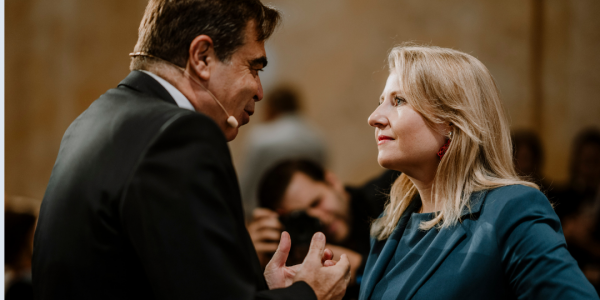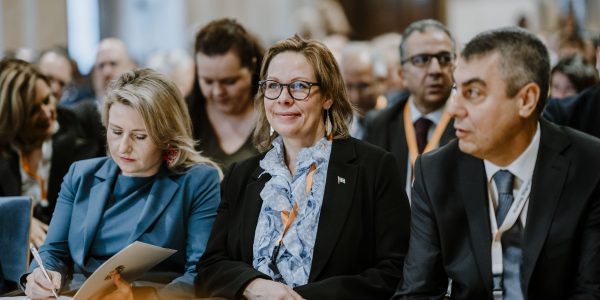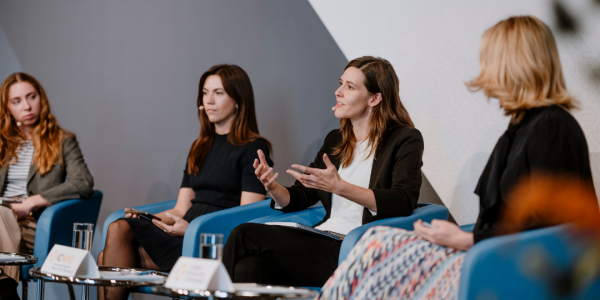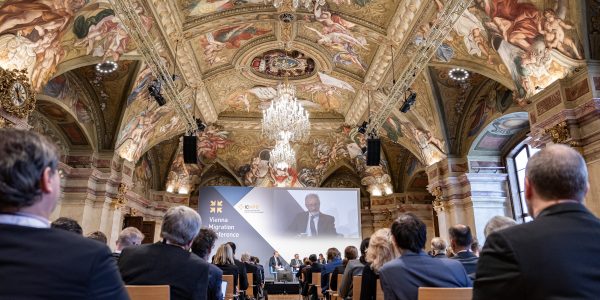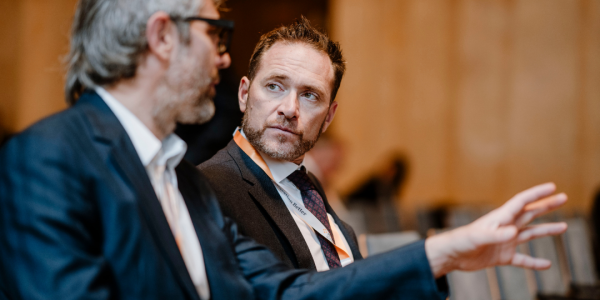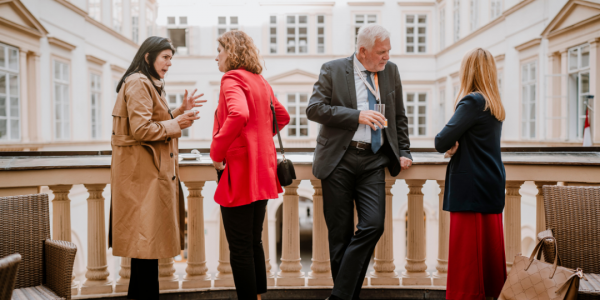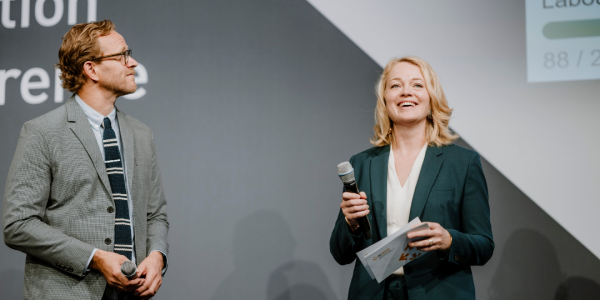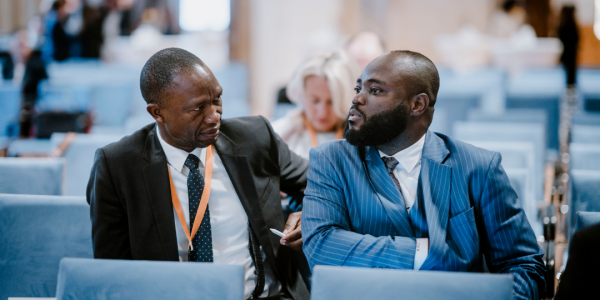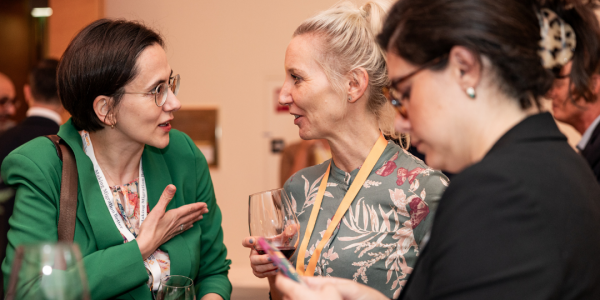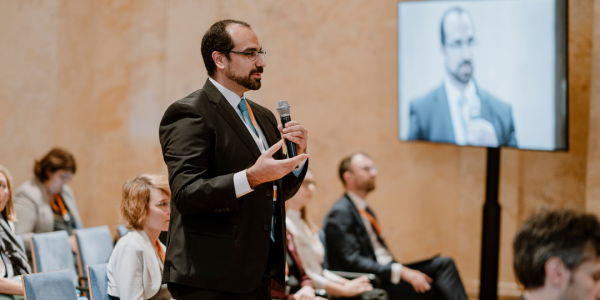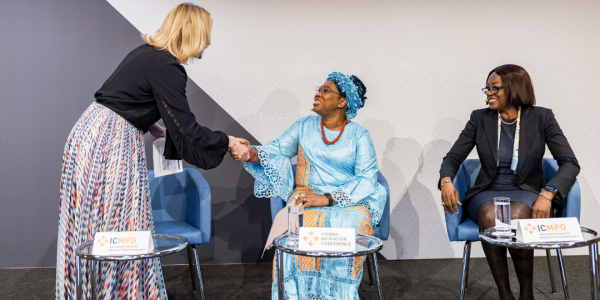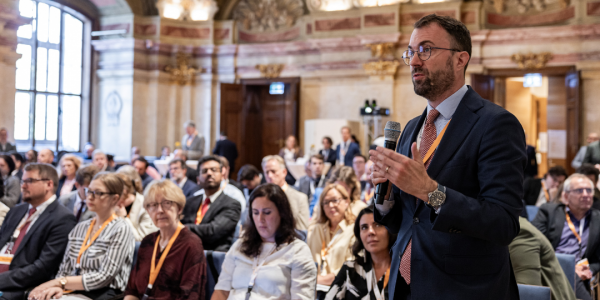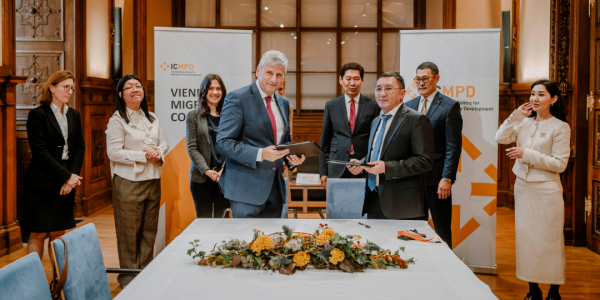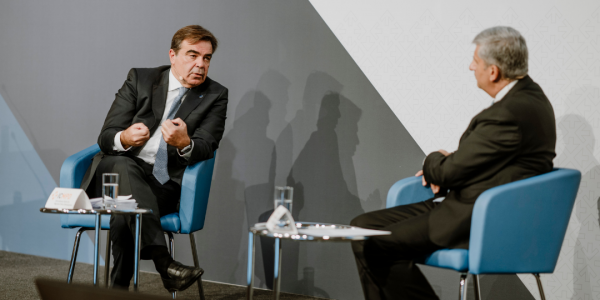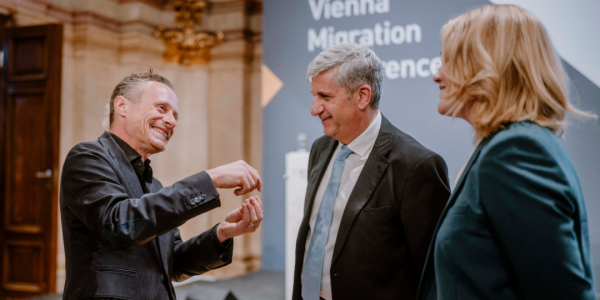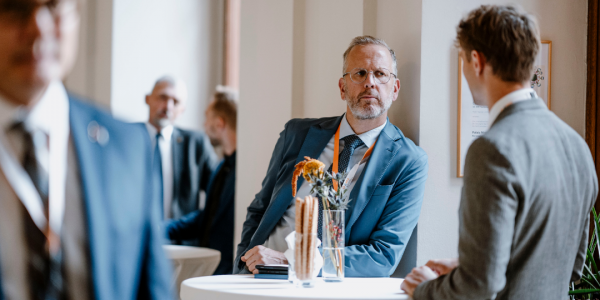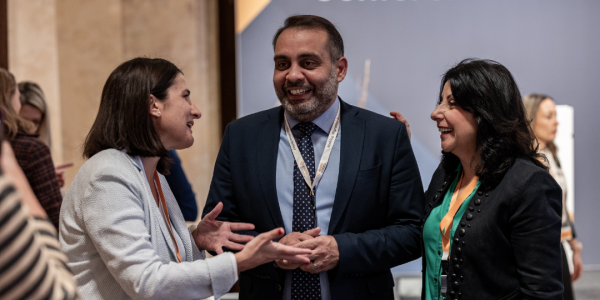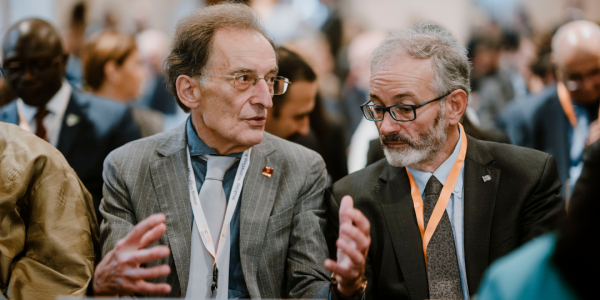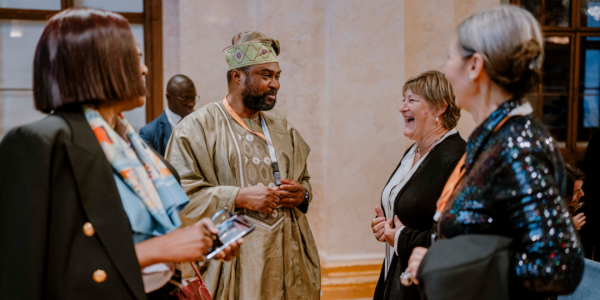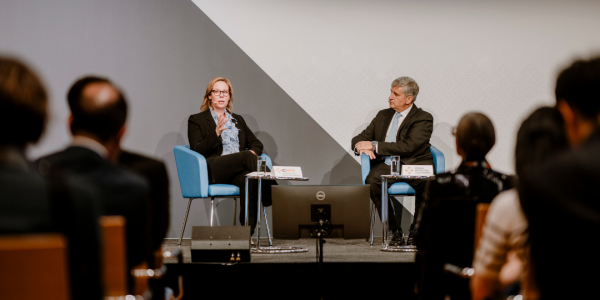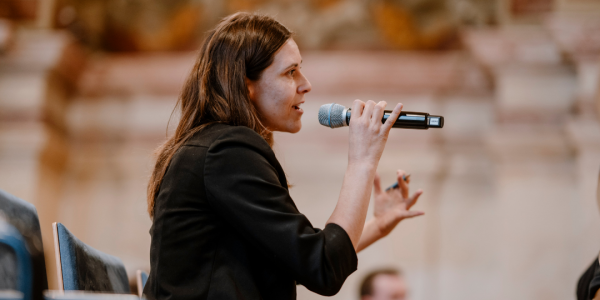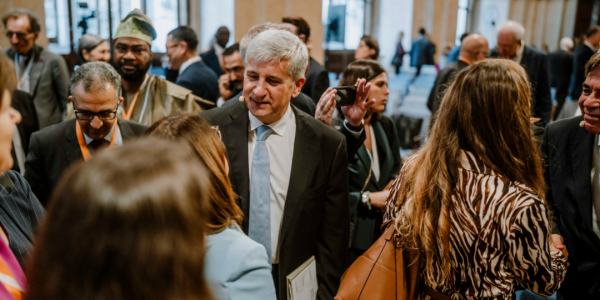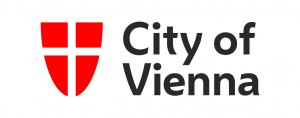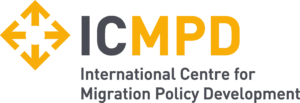Past editions – VMC2023
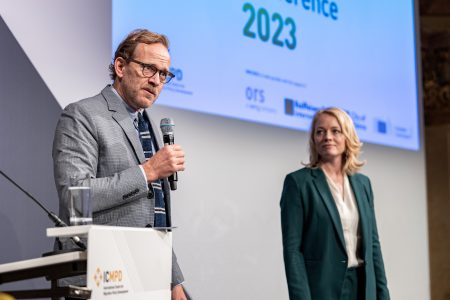
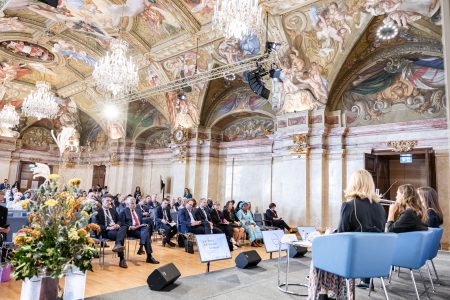
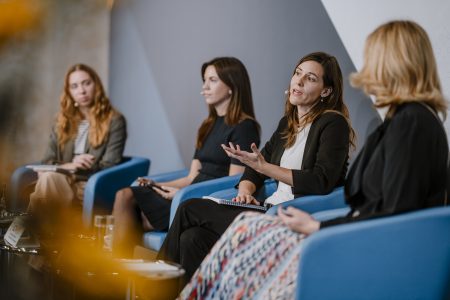
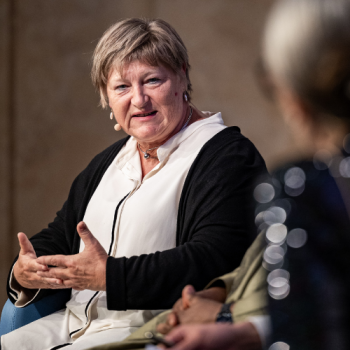
Anne Dussart, Caritas International Belgium
“To improve migration partnerships, civil society needs to be part of the discussion, not only as a service provider but as a fully embedded professional partner tasked with enhancing not the quantity but rather the quality of work.”
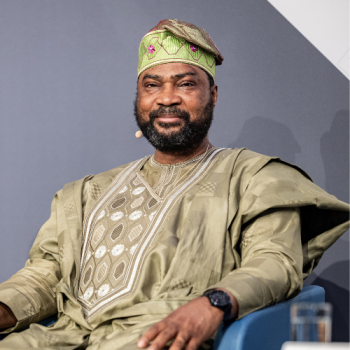
Akinremi Alade Bolaji, Nigeria
“Migration cannot be treated in isolation from other policy issues and global developments. We have to look at it holistically and ensure that all parties are at the table for discussions.”
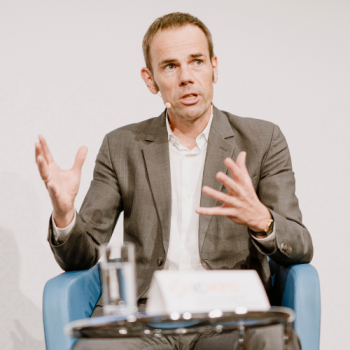
Luuk van Middelaar, Brussels Institute for Geopolitics
“Now 20 months into the war, it has started to dawn on leaders and electorates that Ukraine will one day, in all likelihood, become a member. But what does that actually mean for the EU?”
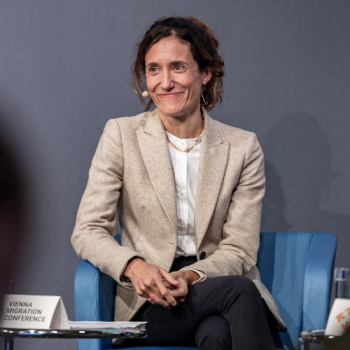
Jana Kobzová, Slovakia
“The generation that is coming of age now feels completely at home in the European Union. For the generation of my parents, Central Europe was their home. For today’s youth, the EU is their oyster. This is their civilizational and relational space. This is where they want to be.”
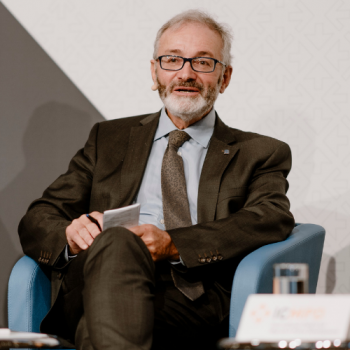
Vincent Cochetel, UNHCR
“There should never be preconditions to dialogue where humanitarian imperatives are at stake. We talk to a variety of governments around the world – we have to do it because that’s the way solutions are found.”
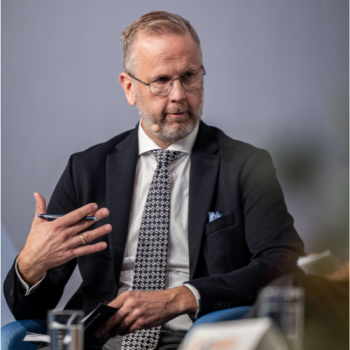
Jonas Grimheden, Frontex
“Border management that is not in compliance with fundamental rights is counterproductive. Frontex should elevate its minimum professional standards to lead and serve as a role model in Europe and beyond.”
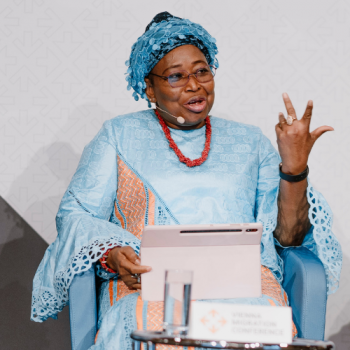
Minata Samate Cessouma, AUC
“We need to improve our political, economic, and social governance so that our young people don’t need to migrate. If they want to migrate, they need to be able to do so in a safe and dignified manner.”
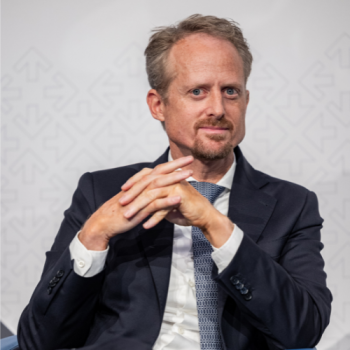
Peter Webinger, Austria
“Trust is something that develops in the process, and sometimes the process is even more important than the result.”

Victoria Rietig, DGAP
“Our carrots are not sweet enough and our sticks are not scary enough to really make a difference and to really get anywhere.”
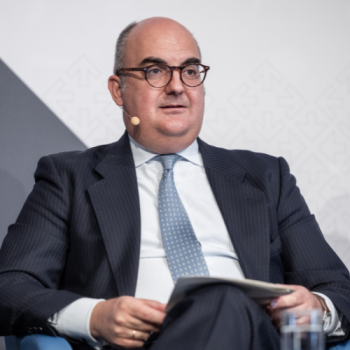
Javier Conde y Martínez de Irujo, Spain
“Migration governance cannot just be about irregular migration – it must be about creating a comprehensive model that also includes legal pathways.”
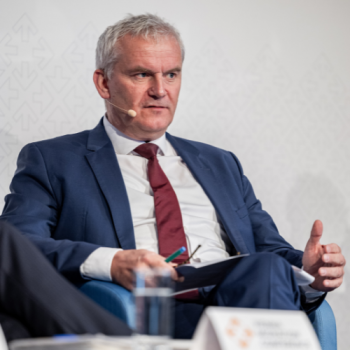
Ulrich Weinbrenner, Germany
“There is a very broad perception that there can only be a European solution to migration and the New Pact is that solution.”
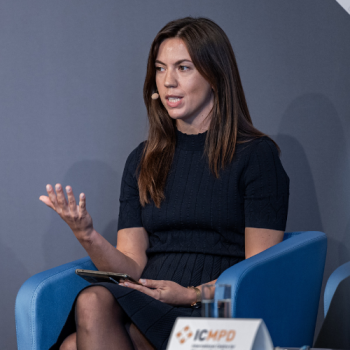
Ana Sofia Walsh, Fragomen
“There’s still a traditional mindset in many European countries in terms of equating skills with qualifications. Particularly as we turn our attention to the climate transition, it will be non-traditional skill sets that we need.”
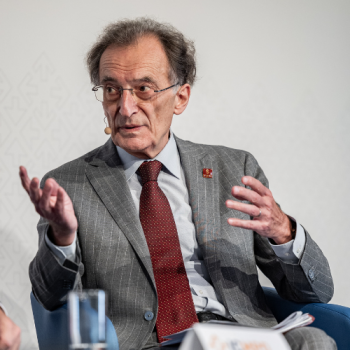
Jean-Louis De Brouwer, Egmont Institute
“The task ahead could be just as much about managing distrust as building trust.”

Laura Dubois, Financial Times
“We need to somehow explain to the public that migration is just a part of Europe. It is not something that will go away with policy. It’s not something that we can solve merely with innovative solutions, which run the risk of eroding human rights.”
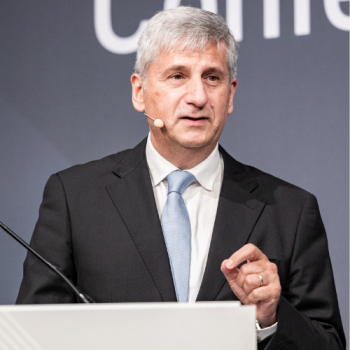
Michael Spindelegger, ICMPD
“Our ability to communicate strategically around migration has not seen enough progress. As migration governance stakeholders, we are still struggling to explain what we’re doing and why we’re doing it to the public, media, our citizens, and voters.”
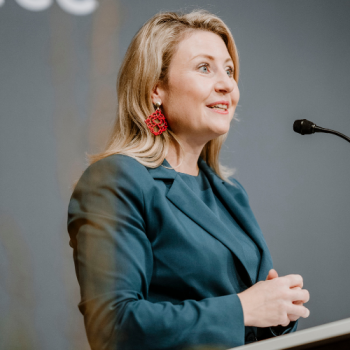
Susanne Raab, Austria
“Migration and integration are two sides of the same coin: The success of integration also depends on the number of people coming to your country at any point in time and the skills they bring with them.”

Margaritis Schinas, EC
“The Pact gives us a regulatory framework firmly grounded in EU law. It will not be a patchwork of regulatory arrangements like the one we have had so far.”
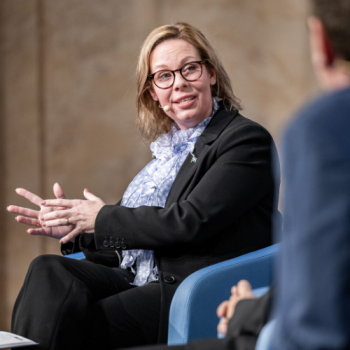
Maria Malmer Stenergard, Sweden
“We have a new whole-of-government approach to migration partnerships in Sweden. It is important that the Minister for Migration and the Minister for Aid convey the same message when speaking with other countries… the EU bodies must work this way too.”
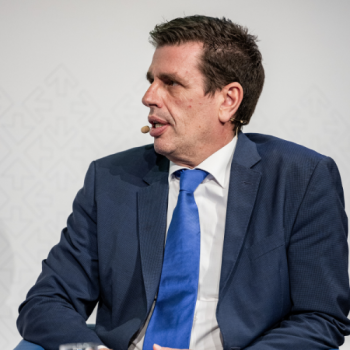
Dimitris Kairidis, Greece
“It took us years to achieve the Pact, but it is only a stepping stone. We should not now relax and declare, ‘mission accomplished.’ Migration is a constantly evolving issue presenting new challenges. We need to keep running to avoid falling behind.”
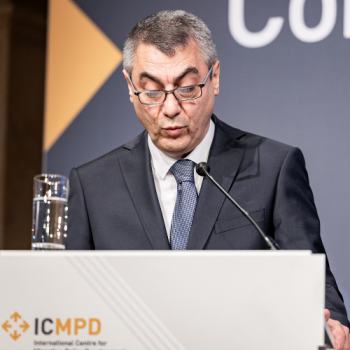
Atilla Toros, Türkiye
“Migration management should focus on realistic and long-term solutions. Each country, regardless of its geographical location and ability to benefit from migration movements, must play its part in finding solutions.”

Janina Kugel, Non-Executive Board Member and Senior Advisor
“Despite knowing we need taxpayers and workers, there is a mismatch and maybe not enough political courage to speak up about the risks from too little immigration. While it might not help win the next election, discussing this issue is now essential.”

Diederik de Boer, University of Maastricht
“Talent Partnerships are an excellent tool that the EU should explore more in the future. As the stays are not permanent, they provide a politically feasible path to getting more skilled labour working in the green economy. Such partnerships can also contribute to building capacities needed in foreign countries.”

Raffaella Greco Tonegutti, Enabel
“Investing in skills means investing in systems – to leverage skills, we need to have systems in place that respond to the needs of the labour market.”
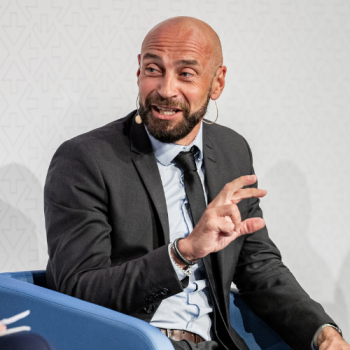
Alexander Wilhelm, Germany
“EU initiatives to promote labour mobility convey the message to people outside the EU that we need skilled workers in EU Member States and that we are open to it. It provides a marketing effect.”
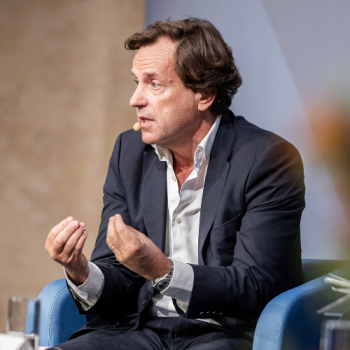
Hendrik Bourgeois, Intel Corporation
“Challenge number one really is digitisation – I don’t see enough digitisation. I see still a lot of applications that are handwritten. Sometimes it needs to be in blue ink or not in black ink. These types of requirements belong in the 20th century or the 19th century.”
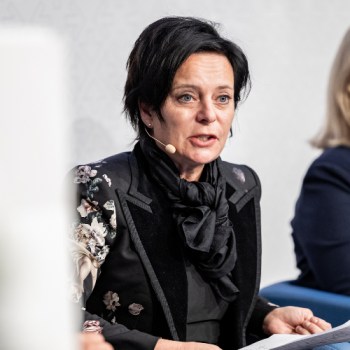
Jo Antoons, Fragomen
“When you look at businesses, they face a lot of complexity because of variations in national immigration rules. This is not only the case for low-skilled workers, but even for highly qualified workers.”
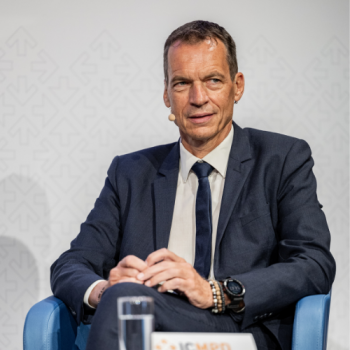
Patrick Philipp, IRU
“The political will and the political support on legal migration is one of the challenges. It is a reality that we are witnessing.”
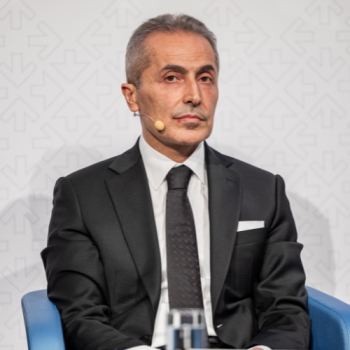
Hüseyin Kök, Türkiye
“Mutual visits on migration priorities help us to get to know each other, both at a strategic and operational level.”
Highlights


Carrots and sticks in migration cooperation: Three uncomfortable truths
By Victoria Rietig
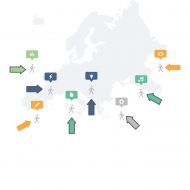

Africa-to-Europe value chains: How nearshoring can mitigate Europe’s migration crisis and aid energy transition
By Michael Tanchum
The conference in numbers








